| Umělec 2004/1 >> Akhe | Просмотр всех номеров | ||||||||||||
|
|||||||||||||
AkheUmělec 2004/101.01.2004 Halka Třešňáková | profile | en cs |
|||||||||||||
|
Summer, 1999
One or another man, both of whom immediately inspire respect with tall stature and full beards, cut to a point reaching to their chests, frequently dart across the lawn at the Plasy monastery. Maxim and Pavel, from the Akhe performance group, were among others who participated with Miloš Vojtěchovsky’s artists-in-residence program.. Throughout their stay at Plasy, artists and residents from the United States and other English speaking countries would meet in the monastery’s large kitchen to pursue idyllic conversations on eternal themes such as art, their own art, the art of others, and the life of artists in general between cooking and eating. Pavel and Maxim stuff themselves with slices of bread and bacon and pass a hatchet and a hammer across the table to each other. They grasp the tools and balance their shafts knowledgeably. “ÄŔ.” Curtly and efficiently, they carry on a conversation in Russian as they continue their preparations for the performance. I don’t know Russian, but as a Slavic person, I can empathize and guess what they are talking about. In the same way that one can guess Slavonic meanings of the Russian Theater group, Děrevo, it is possible to guess the meaning of the simple and clear sentences of Akhe. Both Akhe and Děrevo theater come from the same city, St. Petersburg, and during the Velvet Revolution, from 1989 to 1990, that generation celebrated its thirtieth birthday and first great international successes. Even though the Děrevo and Akhe come from the same cultural environment and are very close to each other, it is immediately evident from any Akhe performance that Maxim Isaev and Pavel Semchenko are artists. They don’t play in their performances, aren’t emotionally immersed in the plot and don’t even feign emotion, but their distinct personal presence on the stage realizes their scenic plans. A Week Later A performance of the group Akhe in the Monastery grounds, in a small granary tower. The performance is for about twenty participants. As it stands out in memory, Maxim lies in a coffin, suspended among lines. Pavel opens the performance by setting fire to a first line, unleashing a suspended hammer to fall. It swings sketching a broad arch in the air and calculatedly slams with its entire mass upon a book fixed to a wall. The book opens, Pavel approaches it and rips out a page. He folds it up into a small square, stuffs it into his mouth, chews on it for a while and then swallows it. Then Pavel, by severing and igniting lines, begins to move the suspended coffin containing Maxim. As it gradually loosens, it falls changing its angle each time. Pavel, one by one very rapidly, slashes or burns the other lines holding the coffin. As the coffin falls, it inclines variously, shifting position and rolling about in the air, as if influenced by Maxim’s weight, until in the end the coffin flips bottom up and Maxim tumbles from it onto the ground of the improvised stage space, right in front of the audience. Autumn and 2002 – Festival 4 days in Motion Along with Jednotka, we are again running a festival bar, and this time a really miniature one. A maximum of three people can order at the counter, and while pouring a drink I feel like a mechanical dancing doll in a mini-market who can only rotate on its axis. Akhe is also here. They came yesterday and tomorrow they’re going to play one of their feature performances. I’m looking forward to it. Pavel and Maxim go to the bar regularly for shots, alternatingly downing vodka or Becherovka. Despite the fact that their bearded chins are already at the bar counter at least eight times and are ordering the same, they still maintain their natural dignity. Apparently with the same resolution that they manage to manipulate elements on stage (“Muse, protect your lovely eyes from the fire, whose scalding heat is a dangerous weapon...”) and play with fire and water, in their real lives, they can manage a demonic percentage of alcohol in their blood. Akhe’s performance for the 4 Days in Motion festival is at the Ponec Theatre, but I am condemned to attend the bar money and drinks, and I am not able to see it. I can hear it, though. There is a dramatic silence to which are heard other sounds, something sliding on the floor, something falls, then silence, the tapping of two objects against each other, laughter... For an hour the sounds increase in pace, until they climax in thunderous applause by the audience. They liked the performance. “A knife fell and stuck into the floor padding,” I hear somebody say, commenting on the show. “Maxim was so nimble, that I really don’t understand how he could make it.” ... “That woman, was she Olga or Barbara? Russian?” ... From captured fragments of conversation by customers at the bar waiting for their drinks, I assembled a picture of Akhe’s performance. Audience members who are attuned to classical theater are awed or even shocked, but there aren’t many of them because they only attend such alternative performances by accident. The audience from a closed circle of alternative actions assesses today’s performance of Akhe: “When I saw them in Berlin, it was much better…”, or “At the Potsdam festival, where we also played, I liked it much more!” Enlightened viewers and experienced thespians all say that they’ve known Akhe for a long time, and remember places all over the world where they have played with them. I have noticed a tendency among the spectators to idealize initial surprise and unexpected punch in the work of beginning artists in contrast to known well-established types but, then they tend to under-appreciate their later growth and late works. As it concerns Akhe, I see an unimpacted pure continuity of development outside the influence of commerce and I admire their persistence. At the bar, I get to know Vadim Gololobov and Andrei Sizintsev, who have collaborated with Akhe since their founding. Pavel asks me if I’d like to come to the audition for their project planned for the next year, on the occasion of the Prague Scenography Quadriennale. I answer that I have already registered for the audition and I’m coming. In the evening everyone dances including the Akhe actors, and they drink. I get home at about four in the morning… The audition takes place at the Alfred ve dvoře theater. Those interested in future collaboration with Akhe include actors, scenographers, dancers and musicians. Maxim, Pavel and Vadim prepared several pieces of bacon, some jars of pickled cucumbers and about ten bread loaves for the audition. As additional props, they set out knives, cutting boards, tables and chairs. The subject for Akhe’s upcoming project for the PQ is the sense of “taste.” As participants in the audition we freely improvise on the subject according to our own manners. Artists make sculptors with breadcrumbs dampened with pickling vinegar, actors alter various rituals and eating habits, musicians admirably use eating utensils and knives to make music and rhythm… During breaks, Maxim, Pavel and Vadim comment with contentment or disagreement and in the end we all clean up together, scraping leftover bread, smeared fat and pickles from the floor. After two months I receive good news: Akhe has chosen for collaboration Phillip Schenker from Switzerland, the Serbian scenographer Dragan Stojičevski, scenographer Kristýna Tablova, and Ondřej Lipovsky who ultimately didn’t participate, and, “hurray,” me too. Preparation for the Prague Quadriennale at the Doubner gallery on Václavské náměstí. We begin to prepare the groundwork for the performance with “taste” as the subject, under Akhe’s supervision. It turns out that in place of Ondřej Lipovsky we will be working with Jakub Hradílek from Prague. From other auditions Akhe added some foreign artists: a dancer from Mexico Cristina Maldonado, Barbara Seifert from Germany and Olga Kachitsyna from Russia, both regular actresses with Akhe. In addition to these artists, Maxim and Pavel introduce a small bald man. No, actually the man to whom we are introduced is simply hairless. If he had to be bald, he’d be so involuntarily, whereas Andrei Sizintsev is willingly bald. He is to compose music and accompany rehearsals and performances with music. In the gallery kitchen utensils are assembled as from the Poet’s Diner: “Froth up in the bowl three yolks three, add milled almond, master, forget not the lemon, Right on shrewd taste, three oh so clever!” Kitchen utensils, instruments and appliances for cooking are assembled in the gallery with cutlery and service designated for dining insanity. They have been bought in bazaars and found in the garbage and in scrap heaps. We have, for example, eight iron pans for frying eggs and steaks, a rake and a broom for a pile of dough to be kneaded and rolled out right on the floor. Dozens of bottles of the cheapest red wine in order to scrutinize its effect on the individual. In addition, PQ brings and a gradually supplies ingredients and stuff intended for examination and to explore the subject of “taste”: twenty loaves of bread, thirty kilos of flour, five links of salami, two plates full of eggs tomatoes carrots, milk... A Few Days Later Our alchemical bar in the Doubner gallery begins to smell. In a corner of the gallery smoked tongues glued with sauces and catsup leftovers from a scene in which Maxim, Pavel and Andrei sitting at the table and dangled from their mouths beef tongue that reached down to their chests. They had before them plates of variously colored garnish: a plate with white flour, a plate piled with red catsup and another plate full of yellow mustard. For this feast, the actors would bend over, dip the dangling beef tongues into the sundry sauces and powders. A bizarre game of interchanging yellow, white and red colors. Later actress Linnea Happonen comes on. Jakub Hradílek kneels before the actress and proclaims his love. He ritually grabs a tomato, and crushes it in his hand over his heart on his white shirt. The crushed “bleeding” red tomato, like his broken heart, symbolized unhappy, unrequited love. He then takes an onion from his pocket, cuts it up and places it on his eyes, inducing tears. The Last Day of Rehearsal at the Doubner Gallery We already have a large number of actions prepared for the daily performances for the Prague Quadrennial taking place at Prague’s Výstaviště. Pavel and Maxim prepared a street performance for us. We go downstairs to the street near the Doubner gallery on Václavské náměstí. Pavel and Maxim have dressed with conspicuous clown costumes, wide red trousers, canary yellow shirts, topped off with strange hats. They set themselves up on the street, immobile like statues, with hats before them containing small change to be left by spectators. Passers-by toss coins into the hats, anticipating the sort of act clowns all over the world do to make money. The actors are expected to suddenly adjust their position as would a mechanical puppet. Instead, for each coin Pavel and Maxim poured a glass of wine and drank them down at once. We all, including passers-by, began to have fun getting Pavel and Maxim drunk. They delightfully kept tossing coins into the hat, until both of the actors had finished off three bottles in a half hour, without getting drunk. Eighth Day of the Quadrennial (“Lo, the silver of daybreak is dancing upon a copper pan! Choke the voice of the muses, Ragueneau, and cheer up heroically; the time to play the lute has ended – Kitchen time has come!”) Every day in the tower of “taste” in our alchemical bar we cook from ten to six, baking serving and letting the guests taste various improvised uncommon-looking foods and mixed drinks. Salt, sweet, bitter or sour, excited alone or in any combination by the sole action of the gustatory nerves. We put on our prepared performance daily and we develop other new ideas. With Akhe you become aware how important it is to limit the time of the performance and not spread it throughout the day. During a performance that lasts for a certain time, the actors can turn on with maximum output and concentrate for that specific period. One can estimate capacity and adjust one’s potential according to the length of a performance in a way that couldn’t be done for an entire day. We continue to exhibit new objects of other possible tastes: fungus, sugar in various states beginning with caramel and I even ate chalk. We freeze some groceries and thaw some, and we also celebrate with a significant amount of alcohol and the great act of Pavel’s birthday. After eight days we are tired and fat from everything.
01.01.2004
Рекомендуемые статьи
|
|||||||||||||
|
04.02.2020 10:17
Letošní 50. ročník Art Basel přilákal celkem 93 000 návštěvníků a sběratelů z 80 zemí světa. 290 prémiových galerií představilo umělecká díla od počátku 20. století až po současnost. Hlavní sektor přehlídky, tradičně v prvním patře výstavního prostoru, představil 232 předních galerií z celého světa nabízející umění nejvyšší kvality. Veletrh ukázal vzestupný trend prodeje prostřednictvím galerií jak soukromým sbírkám, tak i institucím. Kromě hlavního veletrhu stály za návštěvu i ty přidružené: Volta, Liste a Photo Basel, k tomu doprovodné programy a výstavy v místních institucích, které kvalitou daleko přesahují hranice města tj. Kunsthalle Basel, Kunstmuseum, Tinguely muzeum nebo Fondation Beyeler.
|







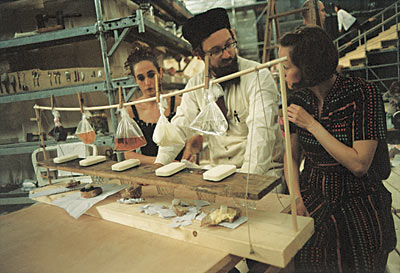
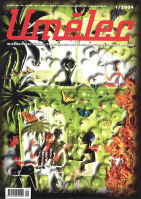



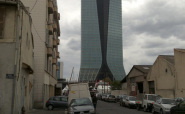
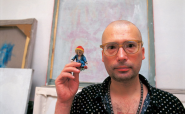
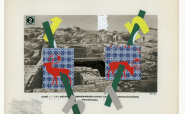
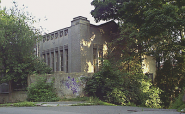
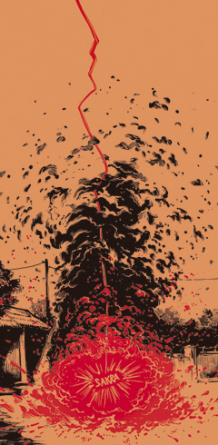











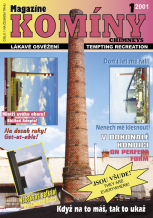

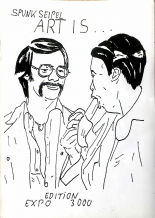
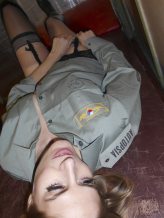


 We Are Rising National Gallery For You! Go to Kyjov by Krásná Lípa no.37.
We Are Rising National Gallery For You! Go to Kyjov by Krásná Lípa no.37.
Комментарии
Статья не была прокомментированаДобавить новый комментарий